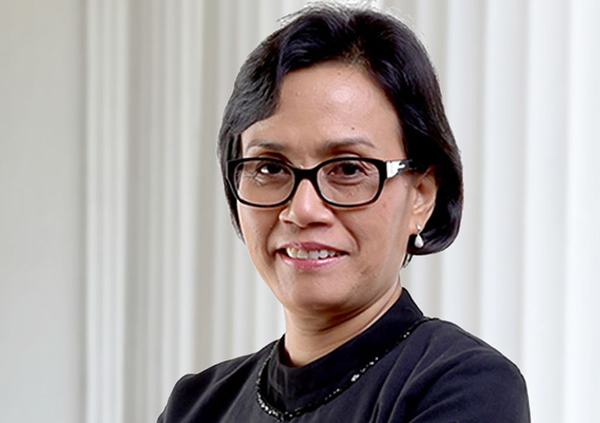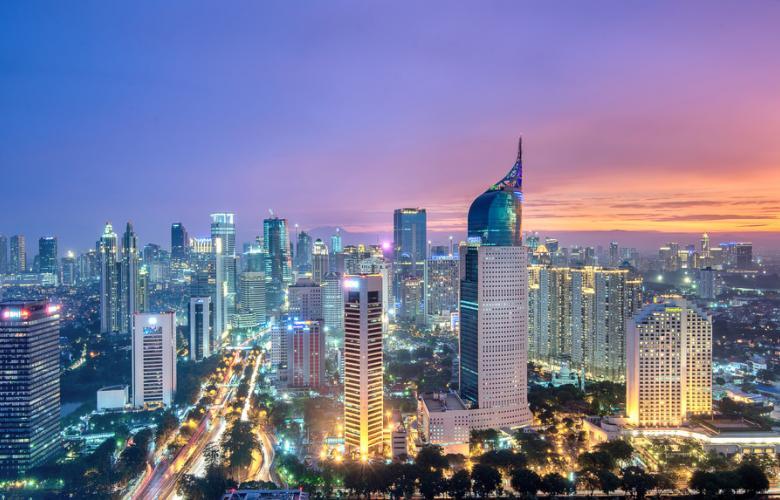Indonesia’s tax amnesty has yet to show its impact in the real estate sector but it is hoped it will result in increased confidence, stability and demand in the market in Q2-2017. Launched in July 2016 and running until 31 March 2017, the scheme was introduced to recover billions of dollars in revenue lost to widespread tax evasion and in assets hidden overseas by wealthy citizens and businesses. This reform was an initiative to increase revenue and control the budget deficit. At least 745,000 taxpayers have declared more than $330 billion of assets so far. Generous tax rates from as low as 2 per cent to 10 per cent were offered under the scheme, depending on when individuals declared their hidden assets, and whether the funds were repatriated. According to Indonesia Investments, tax declarations of on and offshore funds should lead to IDR 165 trillion (approx. USD$12.5 billion) worth of additional state income. Indonesian authorities are now investigating those who still continue to evade taxes.
According to the Ministry of Foreign Affairs website, “all Indonesians subject to Indonesian tax can take their own important roles to support national development and people’s welfare by paying taxes. Taxpayers can disclose incomplete or unreported income in their previous tax periods without having to face prosecution or pay any penalty during the tax amnesty period.”
When the tax amnesty program finished in March, many property investors in Southeast Asia's largest economy became optimistic that the scheme’s funds will boost the Indonesian property sector in the second half of 2017. This momentum should also boost property developers’ confidence in commencing new projects after many years of weak demand and postponed projects. PT Intiland Development launched a marketing campaign featuring a bird soaring above high-rise towers, with the slogan: "Buy property with tax amnesty" encouraging investors to choose real estate. Real estate consultant Indonesia Property Watch predicted that 60% of all repatriated funds will be invested in property, particularly at the luxury end, which is seen to offer a higher return on investment due to rising values. But as all of the funds have yet to be repatriated, it is a wait and see prospect. Director of the MSH Group, Susanto Kiswandono, says there is yet to emerge a positive effect of the tax amnesty program, but Michael Widjaja, CEO at Sinar Mas Land, says he has experienced rising residential and commercial property sales since the start of 2017. Widjaja's company saw a 30 percent year-on-year (y/y) growth in the first quarter of 2017, partly attributed to the government's tax amnesty program. Thomas J. Angfendy, General Director at Metropolitan Land, a Jakarta-based property investment and development company, said the impact of the amnesty program on the property sector has shown an increase in sales in the higher-middle class and elite residential segments but not in the lower segments. Meanwhile, Credit Suisse said "once properly documented through the tax amnesty scheme, we believe that this amount of wealth will likely to flow towards property assets due to relatively more attractive returns than some other alternatives e.g. bank deposit rate and bond yields".
Todd Lauchlan, Country Head of JLL Indonesia writes “overseas real estate investors pumped at least US$2.8 billion into Indonesia last year, according to Reuters, including a US$1 billion tower backed by the China Communications Construction group. Mitsubishi, Tokyu Land, Hongkong Land and Sime Darby also have deals under way in Jakarta and nearby. With 200,000 people moving to Jakarta each year and a young, middle-income population of 55 million families, there is strong demand from owner/occupiers – the underpinning of a stable market.
"While residential has been sluggish, Indonesia has made it increasingly easier to own a home. In 2016, Bank Indonesia cut interest rates three times, a total of 150 basis points, to 4.75 percent, and lowered minimum down payments. According to Indonesia Property Watch, property sales will grow at least 15 percent this year, the first annual growth since 2013".
 The Indonesian government’s initial target of 1,000 trillion rupiah was considered to be overly ambitious, and the total amount of funds repatriated was only S$15.3 billion, according to the Taxation Directorate General website. United Overseas Bank said that Indonesia's foreign exchange reserves had received a boost from the repatriation scheme, even though the amount had ‘underperformed targets’. President Joko Widodo has cited higher tax revenue as the key to boosting infrastructure spending and growth.
The Indonesian government’s initial target of 1,000 trillion rupiah was considered to be overly ambitious, and the total amount of funds repatriated was only S$15.3 billion, according to the Taxation Directorate General website. United Overseas Bank said that Indonesia's foreign exchange reserves had received a boost from the repatriation scheme, even though the amount had ‘underperformed targets’. President Joko Widodo has cited higher tax revenue as the key to boosting infrastructure spending and growth.
There is, however, some resistance against the government's regulation to create a more transparent financial system and boost the government's tax revenue. Criticism of the scheme has come from charity organization Oxfam and The World Bank. Oxfam feels the amnesty benefits mostly the rich, with the richest one percent of Indonesia's 250 million people controlling nearly half the wealth. The World Bank blames poor tax compliance from high income earners for thwarting the reduction of Indonesia’s poverty and continuing inequality.
Around 73 percent of the assets declared under the programme came from Singapore, worth 751.19 trillion rupiah, and large amounts have also been declared by Indonesians owning assets in the British Virgin Islands, Cayman Islands, Australia and elsewhere.
In Hong Kong, Indonesian tax amnesty participants declared a total of IDR 58.15 trillion worth of assets. But many wealthy Indonesians take advantage of the low tax regime in Hong Kong and do not report these funds to Indonesian authorities. Indonesia has since reached an agreement with Hong Kong, the ‘Bilateral Competent Authority Agreement’, which shares data of Indonesian taxpayers with accounts in the Asian wealth management hub.
Indonesian Finance Minister Sri Mulyani Indrawati said it is important to ease regulations regarding fund repatriations as she detected a desire from Indonesian taxpayers to declare assets stashed offshore, but not to move these assets to Indonesia. She added that around 45 percent of offshore assets consist of investment and bonds, assets that are difficult to repatriate to Indonesia instantly.

Indonesian Finance Minister Sri Mulyani Indrawati
Overall, the amnesty scheme is still considered to be one of the most successful in the world, similar to efforts in India and Australia.
Rosan Roslani, chairman of Indonesia's chamber of commerce and industry, said the tax office should investigate tax evaders. He said "when our tax base is low, there will be some 'hunting in the zoo' because you only have so many people in the system". He endorses the creation of an Indonesian social security number system, similar to that of the United States, to help boost the number of taxpayers.
Similar to this:
Indonesia's property taxes
Billionaire's Row luxury clifftop villa with Indian Ocean views and resort facilities
2016 stimulating measures have not improved home buyer's take-up rate in Jakarta - Colliers






 The Indonesian government’s initial target of 1,000 trillion rupiah was considered to be overly ambitious, and the total amount of funds repatriated was only S$15.3 billion, according to the Taxation Directorate General website. United Overseas Bank said that Indonesia's foreign exchange reserves had received a boost from the repatriation scheme, even though the amount had ‘underperformed targets’. President Joko Widodo has cited higher tax revenue as the key to boosting infrastructure spending and growth.
The Indonesian government’s initial target of 1,000 trillion rupiah was considered to be overly ambitious, and the total amount of funds repatriated was only S$15.3 billion, according to the Taxation Directorate General website. United Overseas Bank said that Indonesia's foreign exchange reserves had received a boost from the repatriation scheme, even though the amount had ‘underperformed targets’. President Joko Widodo has cited higher tax revenue as the key to boosting infrastructure spending and growth. 





